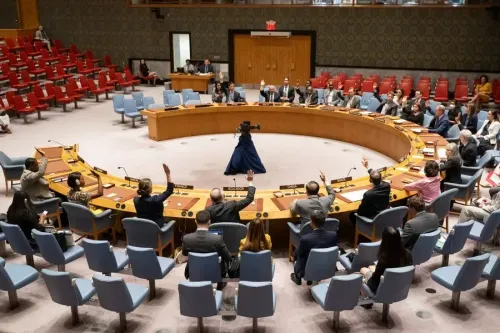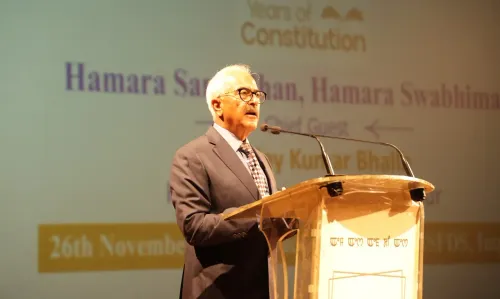Kerala High Court Provides Interim Safeguard Amid Munambam Waqf Land Dispute

Kochi, Dec 10 (NationPress) The Kerala High Court stated on Tuesday that it will issue a temporary directive that will suspend the dispossession notices sent to individuals claiming ownership of land amid the Munambam land conflict involving the Waqf Board. The court remarked that since the case fundamentally revolves around land, affected individuals should initiate a civil suit.
"You must obtain a declaration affirming your ownership. The High Court cannot resolve a disputed factual issue. We can provide an interim stay, which will remain effective until you secure a new interim stay... We will not allow you to challenge it (the Waqf Act) in this manner. You will challenge it at your convenience? We will issue a stay on dispossession until you file a suit, after which you can seek a new injunction. We will protect you," the court stated orally.
The court's comments were made while reviewing a petition filed by landowners aiming to invalidate several provisions of the Waqf Act, 1995.
In recent weeks, approximately 600 parties, claiming to have acquired land from the Farook College committee in Kozhikode prior to the enactment of the Waqf Act, have protested after receiving notices from the Waqf Board asserting that the land ownership belongs to it.
Subsequently, the Board has initiated eviction actions against them, and at its request, the State Revenue Department has reportedly refused to issue a Record of Rights (RoR) or update documentation.
As a result, Munambam has witnessed protests, with political factions divided on the issue.
This situation prompted eight parties claiming to be buyers of various segments of the Farook College land in Munambam to approach the High Court, challenging the constitutional validity of several provisions within the Act.
"The Waqf Act does not provide safeguards for non-Islamic communities to protect their religious and private properties from being incorporated into the list of Waqf properties compiled by the government or Waqf Boards. This leads to discrimination against other religious communities, violating articles 14, 15, 25, 27, and 300-A of the Constitution of India," the petition stated.
"The Waqf Boards, in an arbitrary manner and without due process of law, exploit undue powers granted by the Act to seize lands belonging to other communities, and even governmental lands, over which no Muslim has any right or claim," the petitioners alleged.
The petitioners further contended that it is unjust to exempt Waqf properties from the Limitation Act, which governs adverse possession and recovery of property.
"There is no justifiable reason for granting an exemption from the Limitation Act solely for the recovery of Waqf properties; this principle should apply equally to all religious properties," they argued, presenting this and other grounds to seek the annulment of specific sections of the Waqf Act.









